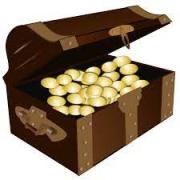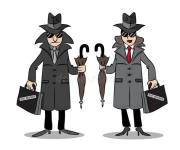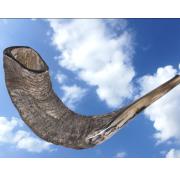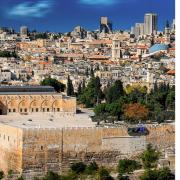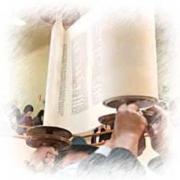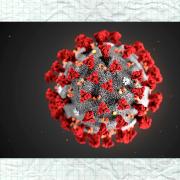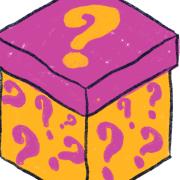Ayeka - Where Are You?
This is Part 2; please read Part 1 before proceeding with the content below.
Recently, I heard a thought about Adam HaRishon and his eating of the fruit from the Tree of Knowledge, as when one associates oneself with that sin, it limits one's growth. It is a nice idea, but please allow me to approach this from a different angle.
In Parashat Bereshit 3:9-11, says: "וַיִּקְרָ֛א יה׳ אֱלֹהִ֖ים אֶל־הָֽאָדָ֑ם וַיֹּ֥אמֶר ל֖וֹ אַיֶּֽכָּה׃ - G-d Hashem called out to the Human and said to him, "Where are you?"
וַיֹּ֕אמֶר אֶת־קֹלְךָ֥ שָׁמַ֖עְתִּי בַּגָּ֑ן וָאִירָ֛א כִּֽי־עֵירֹ֥ם אָנֹ֖כִי וָאֵחָבֵֽא׃ - He replied, I heard the sound of You in the garden, and I was afraid because I was naked, so I hid.
וַיֹּ֕אמֶר מִ֚י הִגִּ֣יד לְךָ֔ כִּ֥י עֵירֹ֖ם אָ֑תָּה הֲמִן־הָעֵ֗ץ אֲשֶׁ֧ר צִוִּיתִ֛יךָ לְבִלְתִּ֥י אֲכׇל־מִמֶּ֖נּוּ אָכָֽלְתָּ׃ - Who told you that you were naked? Did you eat of the tree from which I had forbidden you to eat?"
Let's stop here. As always, everything that is about to follow is just my two cents, my opinion, may be something to ponder about.
So, what happened here?
Adam ate the fruit, and Hashem is looking for him? I don't believe it's that simple; there must be more to it. Hashem knows where everyone is, and especially He knows where His creation is, right there in the Garden. By asking Ayeka - Where are you? I believe, Hashem meant something else.
If you read part 1, in my opinion, Rabbi Akiva ate the fruits from the Tree of Knowledge, and this propelled him to become one of the greatest teachers we have ever had, a person who taught the next generation of rabbis, who have passed on the Torah as we know it Today.
Similarly, Adam, by eating the fruit from the Tree of Knowledge, gained knowledge of the Torah and its laws - halachot, which is why he was hiding, since the law says that one can't be naked out in the open.
But there's a problem. There was no Torah given to him yet.
So, in 3:21, "וַיַּ֩עַשׂ֩ ייה׳ אֱלֹהִ֖ים לְאָדָ֧ם וּלְאִשְׁתּ֛וֹ כׇּתְנ֥וֹת ע֖וֹר וַיַּלְבִּשֵֽׁם׃ - And G-d made garments of skins for Adam and his wife, and clothed them." And drove them out of the Garden of Eden.
But let's further develop this idea, because I feel we're on to something huge!
In Talmud Bava Metzia 59a, we have an interesting story.
The story begins with a halakhic dispute regarding an oven called "Tanur shel Akhnai" or "The Oven of Akhnai." This oven was constructed from separate tiles with sand placed between each tile. The main question was whether this oven, when disassembled and reassembled, retained its original status or became a new entity. This distinction was crucial for matters of ritual purity.
Rabbi Eliezer ben Hurcanus argued that the oven lost its status, meaning that if it had been ritually defiled, it would lose that impure status.
The majority of the sages ruled that it retained its original status throughout the disassembly and reassembly process.
On that day, when they were discussing this matter, Rabbi Eliezer gave all possible answers to support his view, but the Rabbis disagreed with him. After he could not convince the Rabbis, Rabbi Eliezer said to them:
If the law is according to my opinion, 'This carob tree will prove it'. The carob tree has uprooted itself and moved from its place one hundred cubits, and some say four hundred cubits. The Rabbis said to him: One does not bring halakhic proof from the carob tree.
Rabbi Eliezer then said to them, 'If the halakha is according to my opinion, the stream will prove it.' The water in the stream turned backward and began flowing in the opposite direction. They said to him, 'One does not bring halakhic proof from a stream.'
Rabbi Eliezer then said to them: If the halakha is according to my opinion, 'The walls of the study hall will prove it'. The walls of the study hall leaned inward and began to fall. Rabbi Yehoshua scolded the walls and said to them: 'If Torah scholars are arguing with each other in matters of halakha, what is the nature of your involvement in this dispute?' The Gemara says: The walls did not fall because of the respect due Rabbi Yehoshua, but they did not straighten because of the respect due Rabbi Eliezer, and they remained leaning.
Rabbi Eliezer then said to them: If the halakha agrees with my opinion, 'Heaven will prove it'. A Divine Voice, Bat Kol emerged from Heaven and said: 'Why are you arguing with Rabbi Eliezer, as the halakha does agree with his opinion in every place that he expresses an opinion?'
In response to the Divine proclamation, Rabbi Yehoshua rose to his feet and quoted Deuteronomy 30:12, declaring "Lo BaShamayim He" – "It [the Torah] is not in Heaven." This bold statement asserted that once G-d gave the Torah at Mount Sinai, its interpretation was entrusted to human scholars rather than through Divine revelation.
Rabbi Yirmiyah explained this principle further, stating that since the Torah was already given at Mount Sinai, Jews are instructed to "follow the majority" in legal matters. This establishes the principle that halakhic decisions are made through human deliberation and majority rule, rather than through miraculous signs or Divine voices. After this incident, Rabbi Eliezer was boycotted or put in cherem.
When Hashem came to Adam, and said: Ayeka - Where are you? G-d meant, Adam, where are you, in the Garden of Eden - in the upper world, or down there in the lower world? Your knowledge of Torah and its laws, the halachot, is not for the spiritual world in the Garden of Eden, but it is for the lower world of physicality - the Earth.
This is one of the reasons why Hashem gave the Torah to Moshe Rabbenu in Parashat Yitro, as angels cannot fulfill it because they lack parents and cannot show them respect, and are unable to keep hundreds of other commandments that only us, the humans can fulfill on Earth, down here in the physical realm.
The Sages teach us that when the baby is conceived, an angel teaches the entire Torah to a fetus in the womb. Then, just before he is born, the angel taps him on his upper lip (which leaves an indentation right under the nose). The baby forgets what he had learned, as it says in the Talmud Niddah 30b. I would also assume that the angel has given a tap on Adam's upper lip as well, so he should forget the Torah that he acquired by eating the fruit or by "using a shortcut."
But what is this thing called: law or halacha?
This is the Word of G-d, which is interpreted and explained by the rabbis of each generation and passed on to the next. You can find it in the pages of the Talmud and the written works of the rabbis of each generation, which make up the Oral Torah.
Welcome to Orthodox Judaism, which is the Word of G-d. It is not in Heaven, but down here on planet Earth - interpreted, explained, accepted, and embraced by the millions.
When Rabbi Nathan encountered the prophet Eliyahu, and asked what G-d's reaction was to the argument of The Oven of Akhnai. The Prophet Eliyahu said that G-d smiled and said, "My children have defeated Me, My children have defeated Me," (Talmud Bava Metzia 59b), showing Divine pleasure in human interpretive authority.
So, if what you have read so far makes sense, and since the law is made and changed by the majority, and if the majority of the Sages agree with me that Adam haRishon was hiding since he knew the halacha that one cannot be naked out in the open. And Ayeka - Where are you? - is Hashem's question to Adam, in which world is he - Upper or the Lower, and that the law can be practiced only in the Lower world and not in the Upper.
And if the majority of the Sages have agreed to my opinion above, then may I have the authority just for a second, to call upon the Sages of our Times, to release Rabbi Eliezer ben Hurcanus forever from the cherem/boycott and set him free, so that he may be allowed to sit in the Yeshivah Shel Malaa or The Bet Midrash in Heaven, together with the colleagues of the yesteryears. And just like it was in the olden days, may he state the law as equal, and go head to head with the Mighty of the Upper Worlds.
So, my friend, grab a book and learn the laws of Orthodox Judaism - The Shulchan Aruch. The laws that have been analyzed, debated, agreed upon, accepted, and embraced by millions throughout the history of the Jewish people. We have a lot of catching up to do. Since by learning the laws, we join the millions around the world who are living day-to-day by the Word of the Living G-d.
Shmuel Katanov





